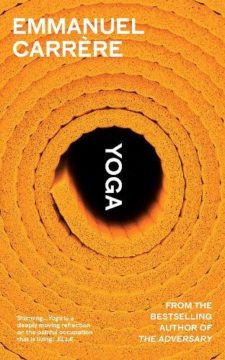Clinton Caward at the Sydney Review of Books:
 Yoga depicts Carrère’s third major depressive crisis. His first followed the success of his fifth novel, The Moustache (1986) from which he recovered by writing a biography of Phillip K Dick. His breakthrough work came in 1993 when he was drawn to the case of Jean-Claude Romand, who had pretended he was a doctor at the World Health Organisation for eighteen years, and on the cusp of having his fraud exposed, murdered his entire family. Carrère had no idea when he followed the journalistic throng to Romand’s little French village just how many years he’d spend trying to narrativize the murders in the style of Capote’s In Cold Blood. But how to do it? He didn’t want his intrusive ‘I’ to appear on the page, drawing attention to itself. Not yet, anyway. The author should be everywhere present but nowhere visible, Flaubert, one of his role models, had proclaimed. After seven years of bashing his head against Capote, he gave up and sought closure by writing a conversational letter to himself about all he’d been through.
Yoga depicts Carrère’s third major depressive crisis. His first followed the success of his fifth novel, The Moustache (1986) from which he recovered by writing a biography of Phillip K Dick. His breakthrough work came in 1993 when he was drawn to the case of Jean-Claude Romand, who had pretended he was a doctor at the World Health Organisation for eighteen years, and on the cusp of having his fraud exposed, murdered his entire family. Carrère had no idea when he followed the journalistic throng to Romand’s little French village just how many years he’d spend trying to narrativize the murders in the style of Capote’s In Cold Blood. But how to do it? He didn’t want his intrusive ‘I’ to appear on the page, drawing attention to itself. Not yet, anyway. The author should be everywhere present but nowhere visible, Flaubert, one of his role models, had proclaimed. After seven years of bashing his head against Capote, he gave up and sought closure by writing a conversational letter to himself about all he’d been through.
This message to self about the Romand case, became The Adversary, (2000) a non-fiction book which launched Carrère’s use of himself as a character. The story, framed by his struggle to write the book, unexpectedly liberated his voice. ‘It’s the first time you hear my adult voice’, he told the Paris Review.
more here.
